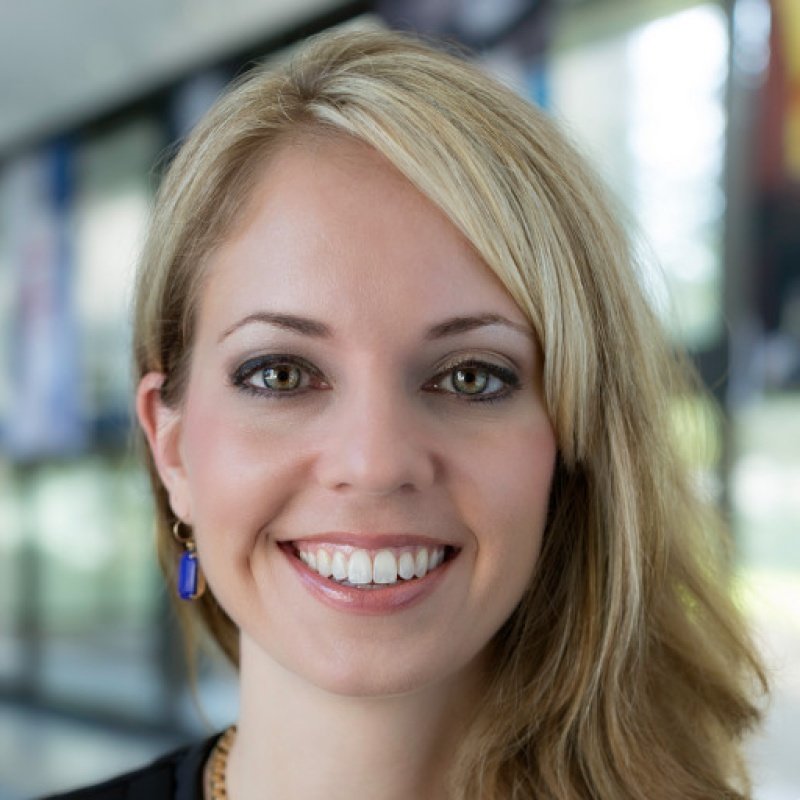Karen Bartuch (CMN '10) has worked in a wide range of settings — from the squad room to the board room — where interpreting data is an important part of decision-making.

Bartuch was a Chicago police officer for 10 years and served as a policy advisor to the department's superintendent. She transitioned to the corporate world in 2011 as a communications, portfolio and project management team leader for Motorola Solutions.
In February she joined PricewaterhouseCoopers as director of corporate intelligence. She helps PwC's clients make business decisions by collecting and analyzing information from a variety of sources.
"For instance, we help companies assess their third party vendors in order to prevent fraud, corruption and bribery on a global basis," she explains. "On a lighter note, we also vet NFL draftees for various teams before they make their selections."
Her new role requires a thorough understanding of how to interpret complex business research and turn it into solutions for her clients. To master these skills, Bartuch, a DePaul alumna, returned to the university last September to enroll in a new, innovative program — the Doctorate in Business Administration (DBA) at the Kellstadt Graduate School of Business.
Now a year into the three-year program, Bartuch discusses in the Q&A below why the DBA is a good choice for experienced, research-minded professionals seeking to advance to the C-suite.
What made you decide to pursue a Doctorate in Business Administration at DePaul's Kellstadt Graduate School of Business?
I have an insatiable curiosity for knowledge and consider myself a student for life! I chose DePaul's program because of the coursework, which has a heavy emphasis on statistics, research methods and data. And also because I am able to complete my degree and work full-time (the cohort meets one weekend per month).
How does the degree advance your career goals?
The program is designed to bridge the gap between business and academia. Almost instantly, I used what I learned in class at work to solve business problems in a more scientific way, which is great for my organization and great for my personal brand. The DBA has definitely opened doors for me, including going to work for the top consulting firm in the world.
DePaul's DBA faculty members have extensive research and industry credentials. How does this benefit students?
The professors are A-MAZING! The program is extremely rigorous and the faculty is focused on our mastery of the material, not just on our passing the course. The courses are expertly designed and every professor is extremely knowledgeable and engaging, which is important when you are in class for nine hours. The faculty is also extremely helpful and available — they want us to succeed. And they are subject-matter experts on any topic of interest, from marketing to finance to statistics, to name a few.
What have you learned from working with the other experienced professionals in your cohort?
This is the magic of the program — the people. I learn something every time we get together. The most salient is that all organizations struggle with similar issues that can be solved or mitigated by going to the research, which most businesses don't do. I also really enjoy being among people much smarter than me that have the same desire to learn — it makes me better.
How do you think organizations will benefit from employing DBA graduates?
Organizations will benefit in many ways. Data science/big data/analytics is probably the most talked about topic in business today and this program provides a great foundation for DBA graduates to practice or lead in that space. In addition, any business problem that needs solving most likely has research available that will help you solve it — from leadership, to how to compensate sales people, to diversity, etc.
What are the advantages of the monthly residency format?
I love the format. I am able to work long hours and travel globally with this format. I also am able to manage my coursework, which usually involves late night hours or weekends. It also forces you to problem-solve on your own and maintain discipline, which will carry on after the program.
What advice do you have for other professionals considering a doctorate degree in business administration?
I have talked to a lot of potential candidates and always tell them to just do it. There will never be an "ideal" time to start. Before I knew it, the first year is almost over and I am able to talk about multivariate statistics and social role theory like a boss. Best decision I ever made.
Learn more about the Doctorate in Business Administration at DePaul.